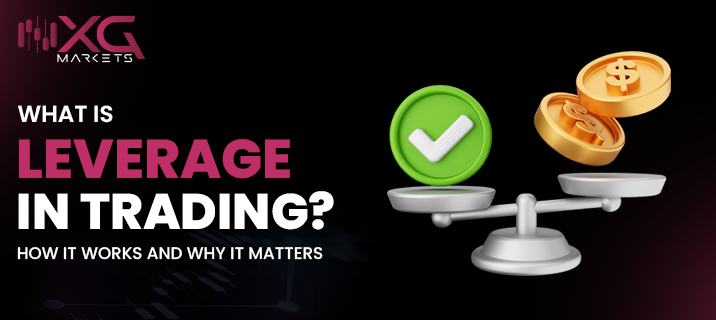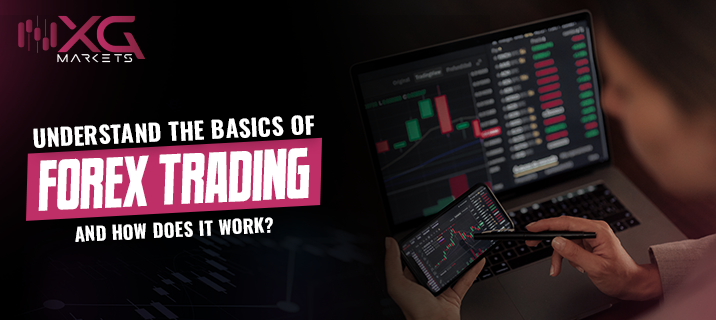.png)
Commodity Trading Guide 2025: Best Commodities to Trade for Beginners
Aug 20, 2025 12:00 amCommodity trading presents a potentially profitable investment avenue, accessible beyond just seasoned professionals. In 2025, the commodity services market is estimated at $3.87 billion and is expected to grow robustly to $8.16 billion by 2034, expanding at a CAGR of 8.65%.
This strong growth shows that commodity trading continues to be important and offers good potential as an investment option. For many people, commodity trading is a smart move to diversify investments.
In this article, we’ll explore what commodity trading is, why it can be a good way to make money, and the best commodities to trade for beginners.
Understanding What is Commodity Trading
It’s simply buying and selling raw materials or farm products. These commodities fit into two main types:
- Hard Commodities: Hard commodities are natural resources that are mined or extracted from the earth. Examples include:
- Gold and silver (precious metals)
- Crude oil and natural gas (energy)
- Iron ore and copper (industrial metals)
2. Soft Commodities: Soft commodities refer to agricultural goods like coffee, wheat, and sugar. Their prices can fluctuate due to factors like seasonality and weather patterns, since they are grown or harvested. Examples include:
- Coffee and cocoa
- Wheat and corn
- Sugar and cotton
Commodity trading is important because raw materials have real value, and their prices fluctuate based on supply and demand. Coffee is a good example: a drought in a major growing area can lead to price increases because of limited supply.
You can trade commodities mainly in two ways: the spot market for quick delivery, or via futures contracts, locking in a price for a future transaction. This versatility makes commodities a smart hedge against inflation and currency fluctuations.
Why Commodity Trading is Profitable
There are several great reasons why people are drawn to commodities:
1. Portfolio Diversification
Investing in commodities can help diversify your investment portfolio. Commodities often rise in value when the stock market declines, which is different from stocks. During the 2008 financial crisis, gold prices climbed while many stocks dropped sharply.
Adding commodities to your investment portfolio can lower risk while increasing potential returns.
2. Hedge Against Inflation
Commodities can protect against inflation. Commodity values increase when prices rise. For example, people buy gold during high inflation to safeguard their money. This increases gold's price. Therefore, commodities are a good choice for maintaining buying power.
3. Potential for High Returns
The potential returns from commodity trading can be significant. Prices can change quickly due to political issues, natural disasters, or shifts in demand. For example, if there is a conflict in an oil-producing country, oil prices can jump. Traders who can read these market signals can make big profits. The commodity market has something for everyone, whether you are interested in energy, agriculture, or precious metals.
Best Commodities to Trade for Beginners
If you’re new to commodity trading, it’s smart to start with the right commodities. Some options are:
1. Gold
Gold is a favourite for many traders. It is a reliable investment during tough times.
- Pros: Gold serves as a safe haven during financial problems and is easily bought and sold. Central bank decisions and global events influence its price.
- Cons: While gold is stable, its returns might not be as high as those of other commodities.
Tip: Keep an eye on interest rate changes and important economic news.
2. Crude Oil
Crude oil is a major player in the commodities market. Its price can fluctuate significantly, creating good trading opportunities.
- Pros: Oil has high liquidity, and prices can fluctuate significantly, influenced by OPEC decisions and global demand.
- Cons: Prices can be unpredictable, mainly due to political issues.
Tip: Watch US oil inventory reports and OPEC meeting results for insights.
3. Silver
Silver is another precious metal that can offer exciting opportunities.
- Pros: It’s cheaper to buy than gold and is used in many industries, like electronics and renewable energy.
- Cons: Silver can be more volatile than gold, so you need to manage risks carefully.
Tip: Stay updated on industrial demand and mining news.
4. Natural Gas
Natural gas is essential for heating and energy production.
- Pros: Its demand changes with the seasons, creating trading opportunities. Prices are affected by weather and energy policies.
- Cons: Prices can be unstable due to market fluctuations.
Tip: Keep an eye on seasonal trends and government energy reports.
5. Coffee
Coffee is a standard product in many homes, making it a great commodity to trade.
- Pros: Demand remains consistent, and weather patterns in major producing countries can affect prices.
- Cons: Price spikes can occur due to supply issues, so stay informed.
Tip: Monitor climate forecasts and harvest reports.
6. Wheat
Wheat is a staple food that is always in demand.
- Pros: It’s influenced by planting and harvest cycles and is usually less volatile than other agricultural products.
- Cons: Extreme weather or export restrictions can quickly change prices.
Tip: Follow USDA crop reports and policies from major exporting countries.
Choosing the Right Commodity Broker
A key part of achieving trading success is finding the right broker. Consider these important factors:
1. Regulation & Licensing
Make sure a trustworthy authority regulates your broker. This helps ensure they follow rules that protect your investments.
2. Fees & Spreads
Compare trading costs, including spreads and commissions. A broker with low fees allows you to keep more of your profits.
3. Trading Platform Quality
Look for a broker that provides a user-friendly platform with fast execution and good charting tools. A reliable platform makes trading easier.
4. Education & Support
If you’re just starting, having access to educational resources and support is crucial. Choose a broker that offers market analysis and customer service to help you learn the ropes. A demo account can also be helpful, allowing you to practice trading without risking real money.
For more insights, explore The Best Way to Trade Commodities with The Most Popular Forex Trading Platform to understand how the right platform can enhance your trading performance.
Risks in Commodity Trading and Ways to Handle Them
Even though commodity trading offers strong profit potential, it is not free from challenges. Understanding the risks before you trade can help you protect your capital and make smarter decisions.
1. Price Volatility
Prices can change quickly based on different factors. This volatility can lead to big gains or losses.
● Management Strategy: Use stop-loss orders to limit losses. Have a clear plan for when to exit a trade.
2. Geopolitical Factors
Political issues can disrupt supply and affect prices. Events like wars or trade disputes can create uncertainty.
● Management Strategy: Stay informed about global news and political developments. Understanding these factors can help you anticipate price changes.
3. Leverage Risks
Using leverage can amplify both gains and losses. While it allows you to control larger trades, it also increases the chance of significant losses.
● Management Strategy: Limit your leverage and only use it when you fully understand the risks involved.
Strategies for Successful Commodity Trading
To turn your trades into profits, consider different strategies. Here are some common approaches:
1. Day Trading
Day trading involves making quick trades to capitalise on price changes within a single day. This strategy requires understanding market trends and real-time information.
2. Swing Trading
Swing trading involves holding positions for several days or weeks based on trends. Traders look for opportunities to profit from short-term price changes.
3. Long-Term Investing
Long-term investing focuses on building positions over time to capture larger market movements. This strategy helps you benefit from fundamental changes while avoiding short-term noise.
Combining these strategies with careful research and smart capital allocation is key to success in commodity trading.
Conclusion
In conclusion, commodity trading offers exciting opportunities for diversification, protection against inflation, and potential profit. Choose the Best Online Brokers for Commodities, and use innovative strategies.
The commodity services market's projected growth from $3.87 billion to $8.16 billion by 2034 reflects the sector's fundamental importance and growing accessibility to individual traders. This expansion creates opportunities for both established professionals and newcomers willing to invest time in proper education and skill development.
If you are ready to explore the opportunities in commodities with professional tools and expert guidance, visit NXG Markets today and start your trading journey.





